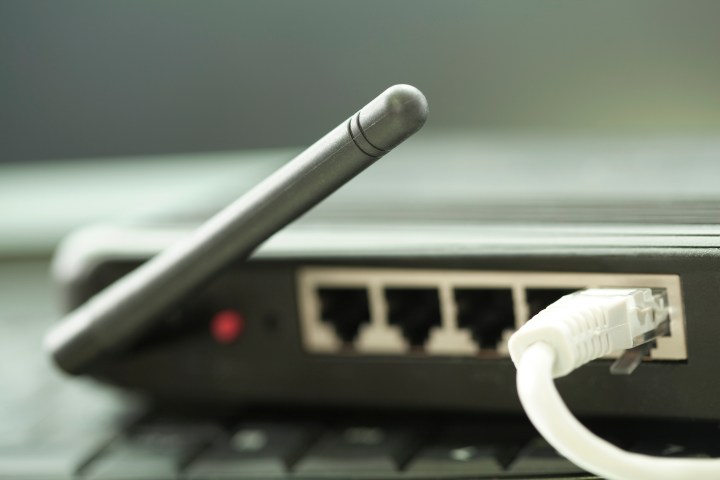How to fix slow upload speeds
Modern download speeds are generally good enough to support whatever your internet connection needs it for, be it streaming, downloading files, or playing online games. However, upload speeds can be a lot slower, and if yours aren’t fast enough, you may be wondering how to fix your slow upload speeds.
There are a few things you can try that should help. Here are some of the best ways to fix slow upload speeds for your home internet.

Getty Images
Updating the firmware of your Wi-Fi router
While we all update the firmware for our most important devices like our phones and computers, updating your WiFi router’s firmware is often an afterthought. If the Wi-Fi works, why bother with the settings?
However, it’s crucial that you keep your broadband hardware up to date to ensure that there aren’t any software-related issues preventing your upload speeds from reaching their full capacity.
It’s not the be-all and end-all for slow upload speeds, but if your Wi-Fi router is running outdated firmware, it can affect the connection when uploading. Just a simple update can fix any remaining technical issues and improve the overall health of your internet connection. It can also improve security on your router.
In terms of actually performing the update, this varies from router to router. Not all hardware in this space works the same way. For example, your own broadband hub can update the firmware automatically. However, others require you to update it manually via a built-in option or by downloading a file from the manufacturer’s website.
One thing is for sure though, you can check your router’s firmware status on your router’s admin page. Access it via its own unique URL (usually some sort of IP-based address), enter the relevant credentials (if you don’t know them, you can usually find them on a sticker on the actual router itself) and navigate to the necessary one Settings.
For more tips, check out our guide to updating your router.
Update your router
If your firmware for the router is up-to-date, the aging of the hardware may affect upload speeds. Your ISP might send out some sort of message every year regarding a new hub updated for better technology and the like.
If your router is more than a few years old, it might be time to consider purchasing a newer, more powerful version. If you haven’t heard from your ISP, call them and see if they offer upgrades. If you’ve been a customer for a while, they should update it for you for free.

Getty Images
Range of Wi-Fi connection/wired connection
If your upload speed is slow and you are using Wi-Fi, the distance to the router may affect you. For example, if you’re in the backyard or on the second floor of your home, some routers won’t offer the same speeds you would get if you were close to the hardware itself.
Getting a Wi-Fi booster that plugs into the room your system is in can go a long way in improving connection speeds for both uploading and downloading.
While this isn’t an ideal scenario, you could use a wired connection in the meantime if you need a faster solution that guarantees results.

Number of connections
Having multiple devices connected to a WiFi router like smartphones, tablets, laptops, desktops and more can affect your upload speed.
In your router’s admin hub, there may be an overview of what devices are connected to the network, how much they’ve downloaded or uploaded, an option to completely disconnect, and other relevant settings. There may be some devices that you don’t even recognize that are using (or have used in the past) your WiFi.
As such, it’s a good idea to limit the number of connections that have access to your router, as this can ultimately overload it at the expense of your upload speeds. If you think some people are using your WiFi without your knowledge, here’s how to deal with it.
change ISP
If none of the above issues fixed slow upload speeds, the answer may lie with the ISP themselves. Ultimately, you get what you pay for from the broadband provider. If the upload speed is at an unacceptable level, you should consider switching to a different ISP.
Why? Well, depending on whether your area has the necessary cables and technology, you can enjoy a much faster upload speed with another company. You might even be able to do this with your current ISP – just give them a call and see if there’s anything they can do about upgrading your plan.
If that doesn’t work, you can always call other services and see what kind of speeds they can offer. By telling them your exact area, they can usually get the highest possible speeds in that particular region on the phone.
For some helpful tips to increase your download speed, check out our guide to increasing your internet speed.
Editor’s Recommendations